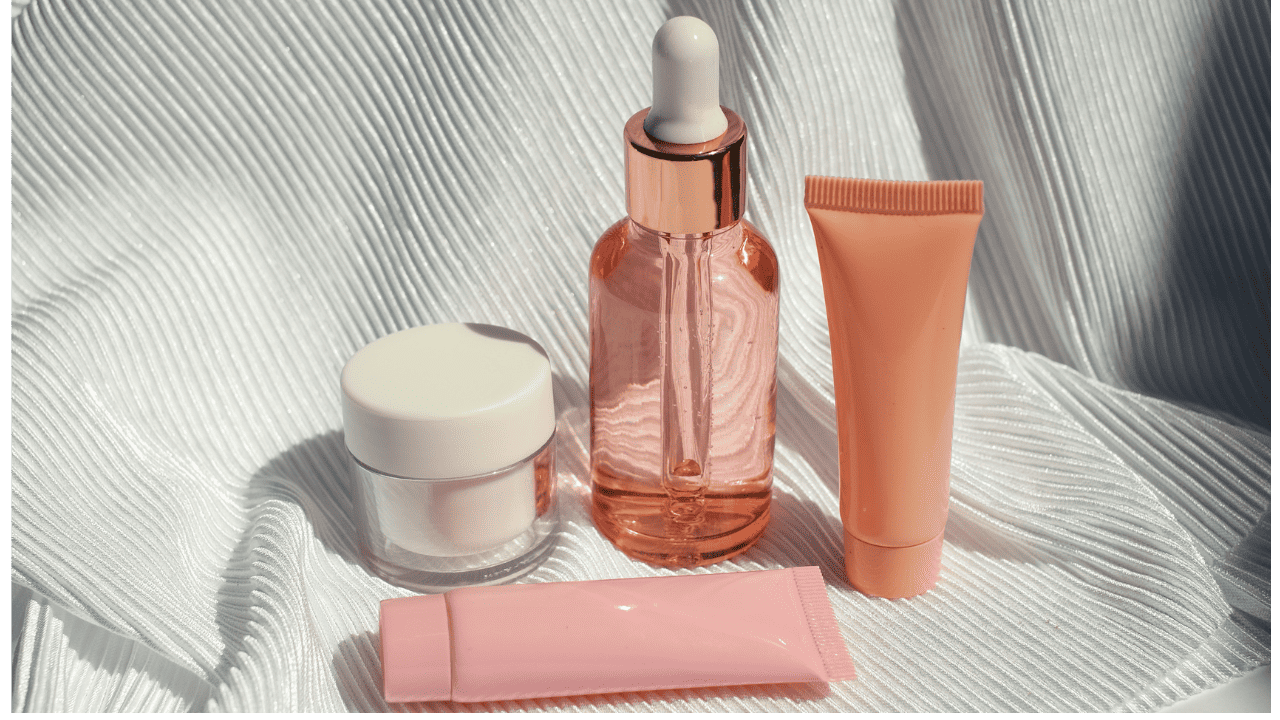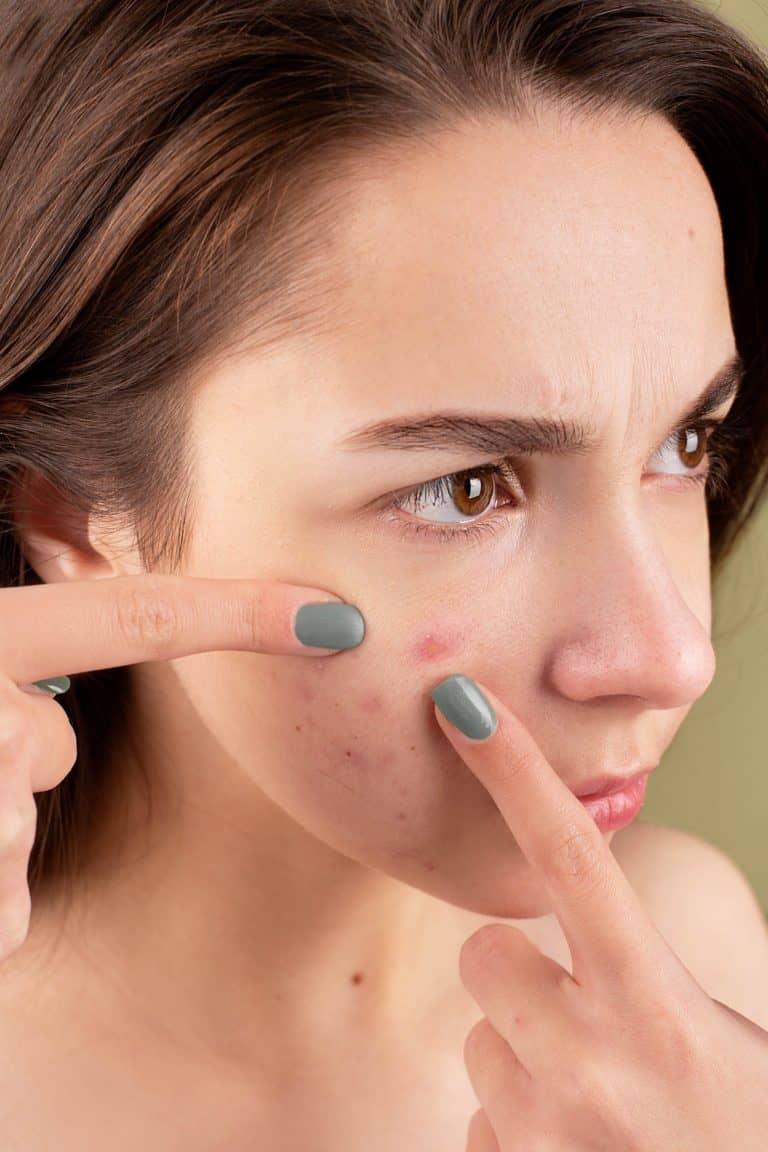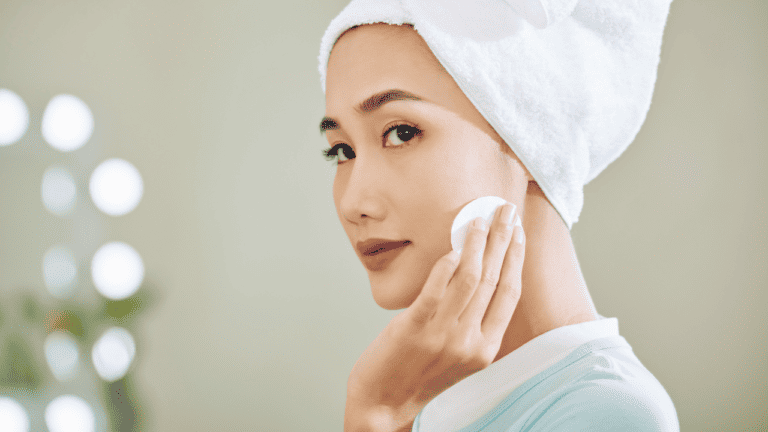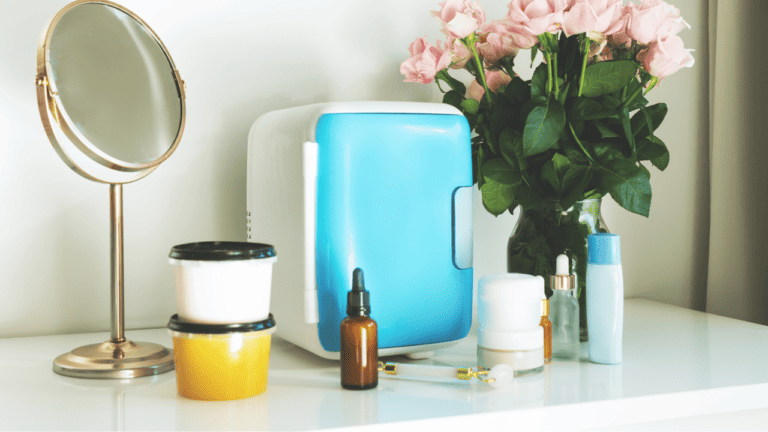Skincare products have become a staple in many people’s daily routines. From cleansers to moisturizers, there seems to be a product for every skin type and concern. However, with the rise of clean beauty and natural skincare, some are questioning whether these products are actually bad for you.

Understanding Skincare Product Ingredients is crucial to determining whether they are safe for use. Many products contain potentially harmful ingredients such as parabens, phthalates, and sulfates. While these ingredients are not necessarily harmful in small doses, frequent exposure to them can have negative health effects. It is important to read labels and research ingredients to make informed choices about what products to use.
Key Takeaways
- Understanding skincare product ingredients is crucial to making informed choices.
- Frequent exposure to potentially harmful ingredients can have negative health effects.
- Reading labels and researching ingredients can help determine whether skincare products are safe for use.
Understanding Skincare Product Ingredients

When it comes to skincare products, it’s essential to understand the ingredients that go into them. Not all skincare ingredients are created equal, and some can be harmful to your skin. This section will discuss how to recognize harmful ingredients and the benefits of active ingredients.
Recognizing Harmful Ingredients
Some ingredients in skincare products can be harmful to your skin and overall health. Here are some ingredients to avoid:
- Preservatives: Preservatives are used to extend the shelf life of skincare products. However, some preservatives can cause skin irritation and allergic reactions. Parabens and phthalates are two common preservatives that have been linked to health concerns.
- Fragrance: Fragrances are often added to skincare products to make them smell nice. However, some fragrances can cause skin irritation and allergic reactions. Look for products that are fragrance-free or use natural fragrances.
- Alcohol: Alcohol can be drying to the skin and can cause irritation. Look for products that use fatty alcohols, which are less drying than other types of alcohol.
- Triclosan: Triclosan is an antibacterial agent that is commonly used in skincare products. However, it has been linked to hormone disruption and bacterial resistance.
- Benzoyl Peroxide: Benzoyl peroxide is a common ingredient in acne treatments. However, it can be drying and irritating to the skin.
- Sodium Lauryl Sulfate: Sodium lauryl sulfate is a foaming agent that is commonly used in cleansers. However, it can be drying and irritating to the skin.
Benefits of Active Ingredients
Active ingredients are the ingredients in skincare products that provide the intended benefits. Here are some active ingredients and their benefits:
- Hyaluronic Acid: Hyaluronic acid is a humectant that helps to hydrate the skin. It can hold up to 1000 times its weight in water, making it an excellent ingredient for dry skin.
- Salicylic Acid: Salicylic acid is a beta-hydroxy acid that is commonly used in acne treatments. It helps to exfoliate the skin and unclog pores.
- Retinoids: Retinoids are a form of vitamin A that are commonly used in anti-aging products. They help to reduce the appearance of fine lines and wrinkles and improve skin texture.
- Mineral Oil: Mineral oil is a lightweight oil that is commonly used in moisturizers. It helps to lock in moisture and prevent water loss from the skin.
- Collagen: Collagen is a protein that is naturally found in the skin. It helps to keep the skin firm and elastic. Collagen is commonly used in anti-aging products.
- Zinc Oxide: Zinc oxide is a mineral that is commonly used in sunscreens. It provides broad-spectrum protection against UVA and UVB rays.
- Ceramides: Ceramides are lipids that are naturally found in the skin. They help to strengthen the skin barrier and prevent moisture loss.
- Vitamin C: Vitamin C is an antioxidant that helps to brighten the skin and reduce the appearance of dark spots. It also helps to protect the skin from environmental damage.
Skin Reactions and Health Risks

When it comes to skincare products, there are concerns regarding the possible negative effects they may have on the skin. Some of the most common skin reactions associated with skincare products include allergic reactions, contact dermatitis, acne and breakouts, and long-term health concerns.
Allergic Reactions and Contact Dermatitis
Allergic reactions and contact dermatitis are two of the most common skin reactions associated with skincare products. Allergic reactions occur when the immune system reacts to an allergen in the skincare product, while contact dermatitis is a type of eczema that occurs when the skin comes into contact with an irritant or allergen.
Skincare products can contain a wide range of allergens and irritants, including fragrances, preservatives, and other chemicals. These ingredients can cause redness, itching, and swelling, and in severe cases, they can lead to blisters and other skin damage. It is important to patch test new skincare products before using them on the entire face or body to avoid these reactions.
Acne and Breakouts
Acne and breakouts are also common skin reactions associated with skincare products. Some skincare products, such as certain moisturizers and sunscreens, can clog pores and lead to breakouts. Acne products that contain salicylic acid or benzoyl peroxide can also cause dryness, flaking, and irritation, which can worsen acne.
It is important to choose skincare products that are non-comedogenic and oil-free to avoid clogging pores and causing breakouts. Additionally, using skincare products that are specifically formulated for acne-prone skin can help to prevent breakouts and keep skin clear.
Long-Term Health Concerns
There are also concerns regarding the long-term health effects of certain skincare product ingredients, such as endocrine disruptors and carcinogens. Endocrine disruptors can interfere with the body’s hormonal balance, while carcinogens can increase the risk of cancer.
Some skincare products may also contain ingredients that can damage the skin barrier, leading to increased risk of infection and wrinkles. It is important to choose skincare products that are free from harmful ingredients and that support the skin’s natural barrier function.
In conclusion, while skincare products can provide many benefits for the skin, there are also potential risks associated with their use. It is important to choose skincare products carefully and to be aware of the possible negative effects they may have on the skin and overall health.
The Role of Skincare in Daily Routine

Taking care of one’s skin is an essential part of daily routine, and skincare products play a crucial role in maintaining healthy and glowing skin. Proper application and usage of skincare products can help in keeping the skin hydrated, protected from environmental stressors, and prevent early signs of aging.
Proper Application and Usage
It is essential to use skincare products correctly to get the most benefit from them. One should always start with a clean face before applying any product. Micellar water is an excellent option to remove dirt, oil, and makeup from the skin without stripping natural oils. After cleansing, one can apply a toner to balance the skin’s pH level and prepare it for better absorption of other products.
Moisturizers are an essential part of any skincare routine as they help in keeping the skin hydrated, soft, and supple. Natural oils like jojoba, almond, and coconut oil can also be used to moisturize the skin. It is crucial to choose a moisturizer that suits one’s skin type and contains SPF 30 or higher to protect the skin from harmful UV rays.
Serums are another essential skincare product that can help in addressing specific skin concerns like hyperpigmentation, fine lines, and wrinkles. Exfoliation is also an essential step in any skincare routine as it helps in removing dead skin cells and unclogging pores. However, over-exfoliating can damage the skin, so it is essential to use an exfoliator once or twice a week.
Building a Balanced Skincare Regimen
Building a balanced skincare regimen is crucial to achieve healthy and glowing skin. One should choose products that suit their skin type and address their specific skin concerns. It is essential to use products consistently and avoid using too many products at once as it can overwhelm the skin.
Pollution is also a significant contributor to skin damage, so it is essential to use skincare products that can protect the skin from environmental stressors. Sunscreen is an essential skincare product that can protect the skin from harmful UV rays and prevent premature aging. One should choose a sunscreen that contains SPF 30 or higher and reapply every two hours if exposed to the sun for extended periods.
In conclusion, skincare products play a crucial role in maintaining healthy and glowing skin. Proper application and usage of skincare products and building a balanced skincare regimen can help in achieving optimal results. It is essential to choose products that suit one’s skin type and address specific skin concerns to achieve the best results.
Special Considerations for Skin Types

When it comes to skincare products, it’s important to consider your skin type. Not all products are created equal, and what works for one person may not work for another. Below are some special considerations for different skin types.
Sensitive Skin and Hypoallergenic Products
Sensitive skin can be challenging when it comes to skincare. It’s important to avoid products that contain harsh chemicals or fragrances that can irritate the skin. Instead, look for products that are labeled “hypoallergenic” or “fragrance-free.” These products are formulated to be gentle on the skin and are less likely to cause irritation.
It’s also important to be mindful of the ingredients in your skincare products. Some natural oils, such as lavender or tea tree oil, can be irritating to sensitive skin. If you have sensitive skin, it may be helpful to consult with a dermatologist to determine which products are best for you.
Adapting to Environmental Factors
Your skin type may also be affected by environmental factors, such as the weather or pollution. For example, if you have normal skin, you may find that your skin becomes drier in the winter months. In this case, it’s important to use a moisturizer that is formulated for dry skin.
Sunscreen is another important consideration when it comes to adapting to environmental factors. It’s important to use sunscreen every day, regardless of your skin type. Mineral sunscreens, which contain zinc oxide or titanium dioxide, are a good choice for sensitive skin. Chemical sunscreens, which contain ingredients like avobenzone or oxybenzone, may be more irritating to sensitive skin.
In summary, when it comes to skincare products, it’s important to consider your skin type and any special considerations that may apply. By choosing products that are formulated for your skin type and being mindful of the ingredients in your skincare products, you can help keep your skin healthy and glowing.
Advancements in Skincare
The skincare industry has come a long way in recent years, with new technologies and ingredients improving the effectiveness and safety of skincare products. Dermatologists are constantly researching and testing new products to ensure that they are safe and beneficial for consumers.
Innovations in Ingredients and Formulations
One major advancement in skincare has been the use of more natural and organic ingredients. Many beauty products now contain plant-based ingredients that are gentler on the skin and less likely to cause irritation or allergic reactions. For example, some skincare products now contain ingredients like aloe vera, chamomile, and lavender, which have anti-inflammatory properties and can soothe the skin.
Another innovation in skincare has been the development of more advanced formulations. Some skincare products now contain specialized ingredients that can target specific skin concerns, such as wrinkles, dark spots, and acne. For example, some anti-aging creams contain retinol, which can help to reduce the appearance of fine lines and wrinkles.
Hair straightening products, nail polish, and hair dye have also seen advancements in formulation. Many of these products now contain fewer harsh chemicals that can damage the hair or nails. Antibacterial soaps have also been reformulated to remove harmful ingredients like triclosan, which has been linked to health concerns.
Overall, the advancements in skincare have led to safer and more effective products. Consumers can now choose from a wide range of products that are tailored to their specific needs and concerns, and can feel confident that these products have been thoroughly tested and researched by dermatologists.
Making Informed Choices
When it comes to skincare products, it is important to make informed choices to ensure that the products you use are safe and effective. This section will provide some tips to help you make informed choices when selecting skincare products.
Consulting with Dermatologists
One of the best ways to make informed choices when it comes to skincare products is to consult with a dermatologist. Dermatologists are medical professionals who specialize in treating skin conditions and can provide expert advice on which products are best suited for your skin type and concerns. They can also help you identify any ingredients that may be harmful or irritating to your skin.
Understanding Labels and Marketing Claims
Another way to make informed choices when it comes to skincare products is to understand labels and marketing claims. The labels on skincare products can provide valuable information about the ingredients and their concentrations. It is important to read the labels carefully and look for key ingredients that are known to be effective for your specific skin concerns.
Marketing claims can be misleading, so it is important to be skeptical of any product that makes exaggerated or false claims. Look for products that have been clinically tested and have scientific evidence to support their claims.
It is also important to be aware of preservatives in skincare products. Preservatives are added to prevent the growth of harmful bacteria and fungi, but some preservatives can be irritating or even toxic to the skin. Look for products that use preservatives that are known to be safe and effective.
By consulting with dermatologists and understanding labels and marketing claims, you can make informed choices when it comes to selecting skincare products that are safe and effective for your skin type and concerns.
Environmental Impact of Skincare Products
Skincare products are known to have a significant impact on the environment. The production, packaging, and disposal of these products have been linked to various forms of pollution.
One of the significant environmental impacts of skincare products is water pollution. The manufacturing process requires a considerable amount of water, and the chemicals used in the products can find their way into the water supply. This can lead to contamination of water sources, which can be harmful to aquatic life and humans who consume the water.
Another form of pollution associated with skincare products is air pollution. The production process and transportation of the products can release harmful chemicals into the air, contributing to air pollution. This can lead to respiratory problems and other health issues for individuals living in the surrounding areas.
The packaging of skincare products also contributes to environmental pollution. Most skincare products come in plastic packaging, which is not biodegradable and takes hundreds of years to decompose. This leads to the accumulation of plastic waste in landfills and oceans, which can harm wildlife and the environment.
To reduce the environmental impact of skincare products, consumers can opt for eco-friendly products that use sustainable packaging and natural ingredients. Brands can also take steps to reduce their environmental impact by using renewable energy sources and reducing waste in their production process.
In conclusion, the production, packaging, and disposal of skincare products have a significant impact on the environment. Consumers and brands can take steps to reduce their environmental impact and promote sustainable practices.
Regulations and Safety Standards
The skincare industry is not heavily regulated, and this can lead to confusion for consumers who may be unsure about the safety of the products they use. However, there are some regulations and safety standards in place to protect consumers.
One of the main entities responsible for regulating skincare products is the Food and Drug Administration (FDA). The FDA requires that all skincare products be safe for use and properly labeled. This includes ensuring that the ingredients used in skincare products are safe for use and that the product is not mislabeled or misleading in any way.
Preservatives are used in skincare products to prevent the growth of harmful bacteria and fungi. While some preservatives have been linked to health concerns, they are generally considered safe in the low concentrations used in skincare products. Parabens, for example, have been the subject of controversy due to their potential estrogenic effects, but they are still considered safe for use in cosmetics by regulatory agencies such as the FDA and the European Union.
Phthalates are another group of chemicals that have been linked to health concerns, including endocrine disruption and reproductive toxicity. However, the use of phthalates in cosmetics is restricted in the European Union and Canada, and some companies have voluntarily removed them from their products.
Triclosan is an antibacterial agent that has been used in some skincare products, but it has been linked to concerns about antibiotic resistance and endocrine disruption. The FDA has banned the use of triclosan in hand soaps, but it is still allowed in some other products.
Overall, while the skincare industry is not heavily regulated, there are some regulations and safety standards in place to protect consumers. Consumers can also consult with a dermatologist to learn more about the safety of the products they use and to get recommendations for products that are safe and effective for their skin type.
Alternatives to Traditional Skincare
There are many natural and organic options available for those who are concerned about the safety of traditional skincare products. These alternatives are often made with ingredients that are less harsh and more gentle on the skin.
Natural and Organic Options
One alternative to traditional skincare products is to use natural oils. Natural oils such as coconut oil, jojoba oil, and argan oil can be used to moisturize the skin and provide a healthy glow. These oils are rich in antioxidants and can help protect the skin from damage caused by free radicals.
Another option is to use natural and organic skincare products. These products are made with ingredients that are derived from nature and are free from harsh chemicals. Some popular natural and organic skincare brands include Tata Harper, Herbivore Botanicals, and Dr. Hauschka.
It is important to note that just because a product is labeled as “natural” or “organic” does not necessarily mean that it is safe for everyone. It is still important to read the ingredients list and do research on the brand before using any new skincare product.
In conclusion, there are many alternatives to traditional skincare products that are available for those who are concerned about the safety of these products. Natural oils and natural and organic skincare products are just a few examples of these alternatives. It is important to do research and read ingredient lists before using any new skincare product.
The Future of Skincare
As technology and innovation continue to advance, the future of skincare looks promising. Dermatologists are hopeful that new products and treatments will be developed that are even more effective and safe for the skin.
One area of innovation is the development of personalized skincare products. With the use of technology, it is now possible to create products tailored to an individual’s unique skin type and concerns. This approach can lead to better results and fewer negative reactions.
Another area of focus is the use of natural ingredients in skincare products. Many people are concerned about the potential harmful effects of chemicals in skincare products, and the use of natural ingredients can provide a safer alternative. In fact, a study found that Generation Y consumers are more likely to purchase natural skincare products [1].
Advancements in technology are also leading to the development of new skincare treatments. For example, light therapy is becoming an increasingly popular treatment for acne and other skin conditions. This treatment uses different wavelengths of light to target specific skin concerns and can be done in a dermatologist’s office or at home with a specialized device.
Overall, the future of skincare is bright with the potential for more personalized, natural, and innovative products and treatments. As research and development continue, dermatologists are optimistic that these advancements will lead to better skin health for everyone.
Conclusion
In conclusion, the question of whether skincare products are bad for you is not a straightforward one. While some products may contain harmful ingredients, the vast majority of skincare products are safe to use and can provide numerous benefits for the skin.
It is important to be aware of the ingredients in skincare products and to choose products that are suitable for your skin type. Individuals with sensitive skin may want to avoid products that contain fragrances or other potential irritants.
Overall, the best approach is to take a balanced approach to skincare. This may involve using a combination of skincare products, such as cleansers, moisturizers, and sunscreens, along with a healthy diet and lifestyle.
In addition, individuals should be aware of the importance of protecting their skin from the sun, which can cause premature aging and increase the risk of skin cancer. This can be achieved through the use of sunscreen, protective clothing, and seeking shade during peak sun hours.
By taking a proactive approach to skincare and being mindful of the ingredients in skincare products, individuals can help maintain healthy, youthful-looking skin for years to come.
Frequently Asked Questions
What are the potential risks of using skincare products with harmful chemicals?
Skincare products are often made with a variety of chemicals. While many of these chemicals are safe for use, some may pose potential risks. Harmful chemicals can cause skin irritation, allergic reactions, and even more serious health problems. Some of the most common harmful chemicals found in skincare products include parabens, phthalates, and formaldehyde. It is important to read the label of any skincare product you use to ensure that it does not contain any harmful chemicals.
How do certain chemicals in cosmetics negatively affect the skin?
Certain chemicals in cosmetics can negatively affect the skin in a number of ways. For example, some chemicals can cause skin irritation, redness, and inflammation. Others can clog pores and lead to acne breakouts. Some chemicals may even cause long-term damage to the skin, such as premature aging or an increased risk of skin cancer. It is important to be aware of the potential risks associated with the chemicals in your skincare products and to choose products that are safe and effective.
Can regular use of makeup lead to skin damage?
Regular use of makeup can lead to skin damage if the makeup contains harmful chemicals or if it is not properly removed. Makeup can clog pores and lead to acne breakouts, and it can also cause skin irritation and inflammation. Additionally, if makeup is not properly removed at the end of the day, it can lead to a buildup of bacteria on the skin, which can cause infections and other skin problems. It is important to choose makeup that is safe and effective, and to always remove makeup at the end of the day using a gentle cleanser.






